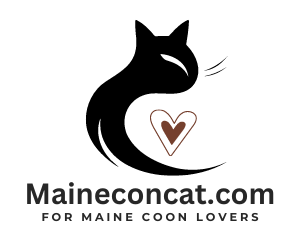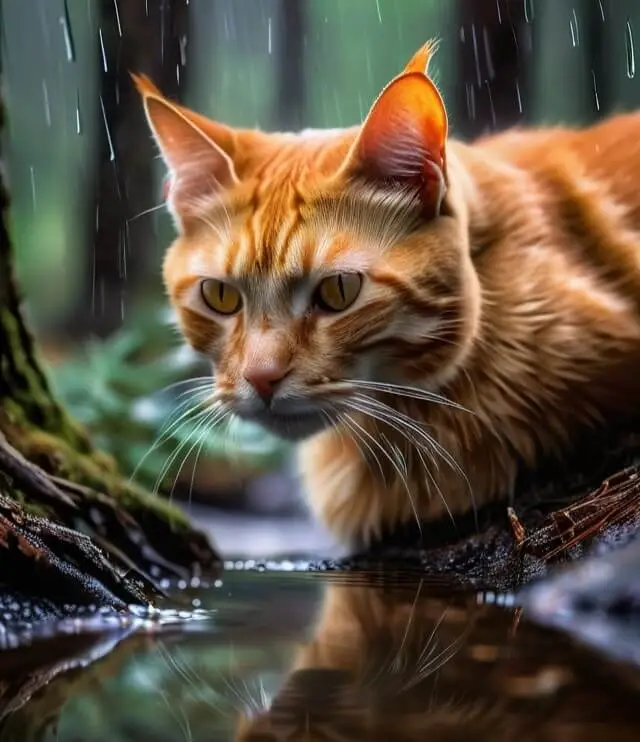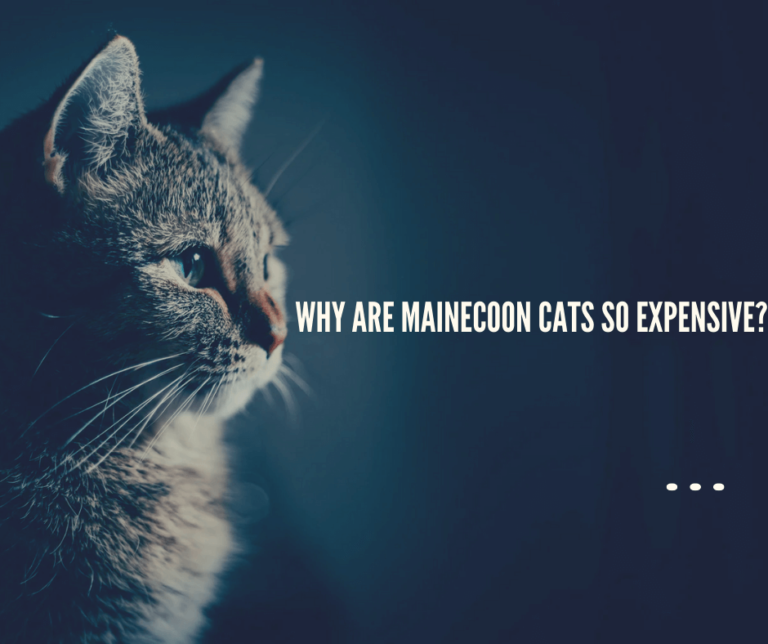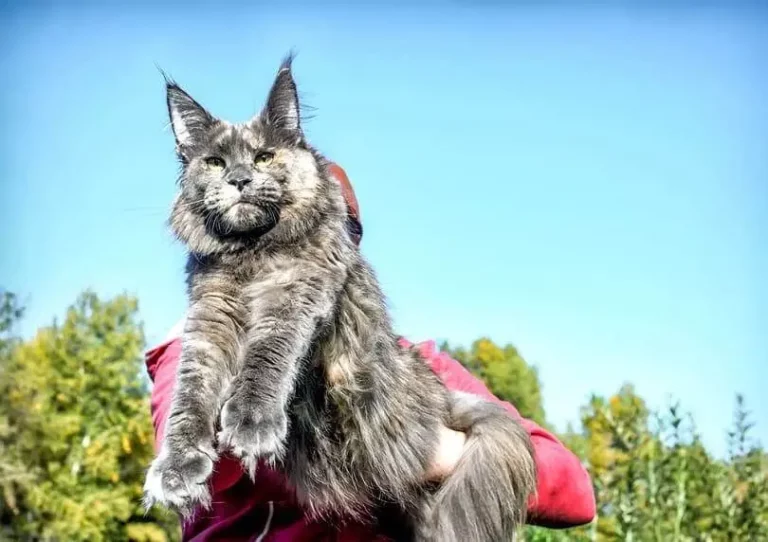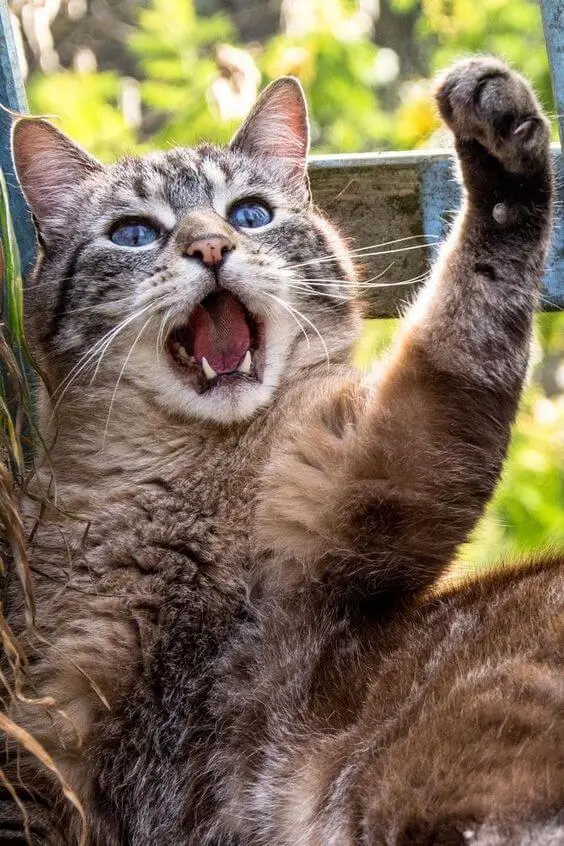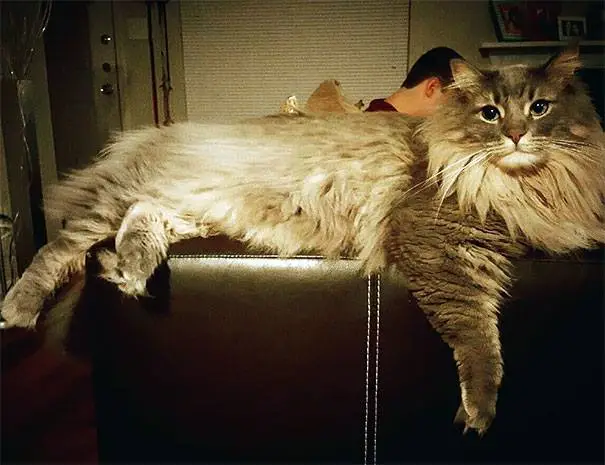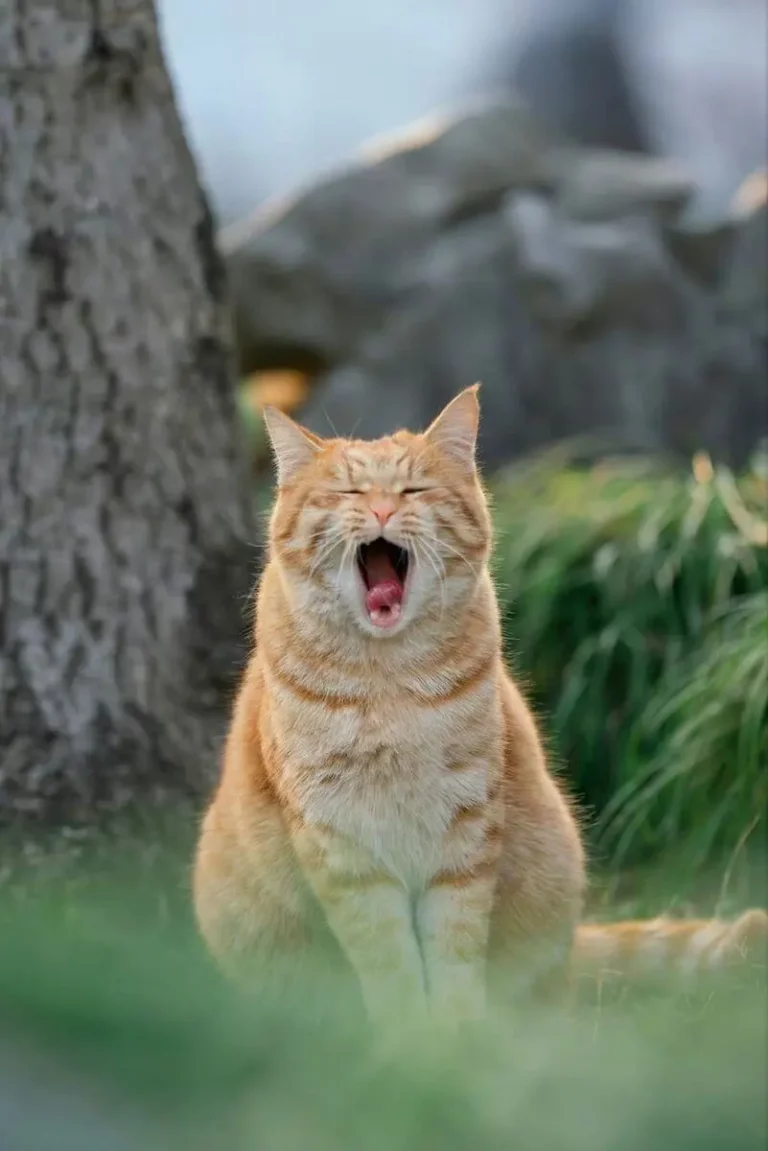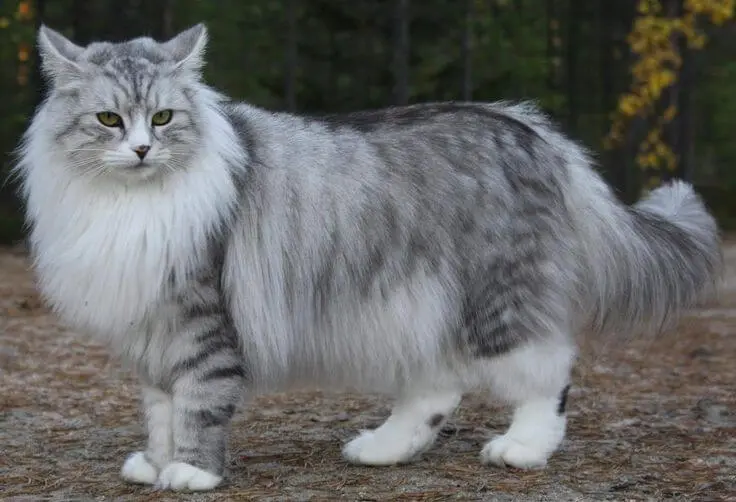12 Maine Coon Behavior Problems & “How To Stop”
Maine Coon Behavior Problems are widespread nowadays for cat owners and they have mostly the same experiences and reviews about this beautiful creature’s behavior. Maine coons are one of the most popular cat breeds, known for their gentle nature, affectionate behavior, and playful personalities. These cats are also known for their large size, stunning appearance, easy to train, Low maintenance, affectionate, and intelligence. But sometimes they do pretty questionable things, Which makes cat owners wonder what is going on inside the cat. However, like all pets, Maine Coon behavior problems need to be addressed. In this blog post, I will discuss some of the most common Maine Coon behavior problems faced by Maine Coon owners and their solutions so, let’s delve further.
Remember that each Maine Coon is an individual with unique needs and behaviors and personalities. Patience, understanding, and positive reinforcement training techniques can go a long way in addressing and preventing Maine coon behavior problems.
If the Maine Coon’s behavior worsens, consult with a veterinarian or animal behaviorist, They can provide valuable guidance tailored to your Maine Coon’s specific needs. By working proactively to address Maine Coon behavior problems, you can help create a happy and well-adjusted environment for both you and your beloved Maine Coon companion.
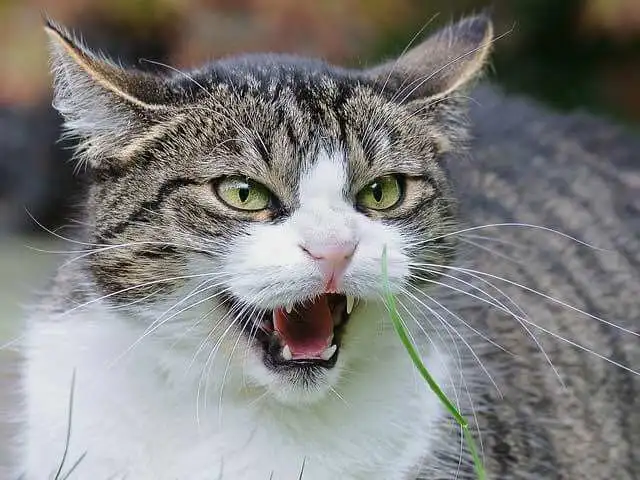
Most Common Behavior Problems
1-Scratching
Scratching is a natural Maine coons Behavior Problem. Maine coon scratch for a lot of reasons. They may want to remove the dead outer layers of claws and even want to burn some energy and scratch the floor. Cats have scent glands, by scratching they feel relaxed. However, excessive scratching can become problematic if your Maine Coon damages furniture or other household items. To manage scratching behavior, it’s important to provide your cat with appropriate scratching surfaces, such as scratching posts or pads, and discourage them from scratching on furniture or other inappropriate surfaces. To encourage your Maine Coon to use a scratching post or pad, place it in an accessible location and sprinkle it with catnip or other attractants. To discourage your Maine Coon from scratching on furniture, use deterrents such as double-sided tape or aluminum foil on the surfaces they tend to scratch.
You can also provide your cat with alternative scratching surfaces near the furniture, or cover the furniture with a scratching post or pad. Suppose your Maine Coon continues to scratch excessively despite efforts to address the behavior. In that case, consulting with a veterinarian or professional cat behaviorist may be helpful to identify the underlying cause and develop a treatment plan. In some cases, excessive scratching may be a sign of stress or anxiety or may be related to a medical condition that requires treatment.
2-Aggression:
Aggression is another common behavior problem. Aggressive Maine coon behavior problems can be caused by various factors, including fear, territorial behavior, and socialization issues. To manage this behavior, it’s essential to identify the underlying cause of your cat’s aggression. If your Maine Coon is fearful or anxious, try providing them with a safe space where they can retreat when they feel stressed. If your cat is aggressive towards other cats, consider providing them with separate feeding areas, litter boxes, and sleeping areas.
3-Destructive Behavior:
Destructive behaviors are another Maine coon Behavior problem. Destructive behavior in Maine Coons can refer to a variety of behaviors that result in damage to household items or property. This can include chewing on furniture, curtains, or electrical cords, digging in plants, scratching walls or doors, or knocking over items. Destructive behavior can be caused by various factors such as boredom, lack of exercise, stress, or anxiety.
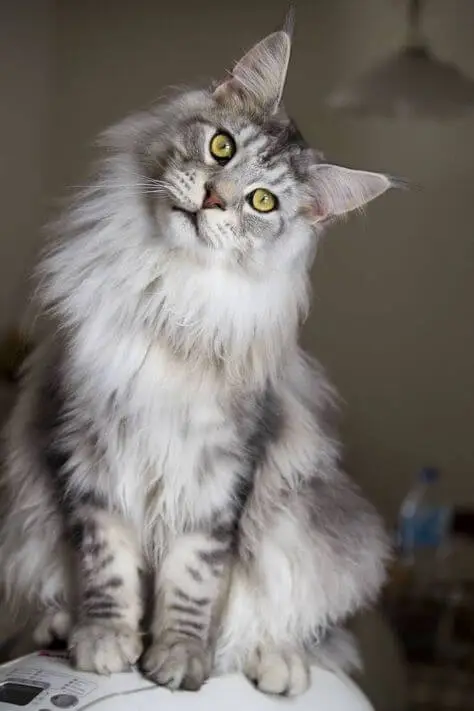
If they don’t receive it, they may resort to destructive behavior as a way to relieve their boredom or anxiety. It’s important for owners to provide their Maine Coons with plenty of toys, scratching posts, and playtime to keep them occupied and prevent destructive behavior. Suppose destructive behavior persists despite efforts to address it. In that case, consulting with a veterinarian or professional cat behaviorist may be helpful to identify the underlying cause and develop a treatment plan.
4–Vocalization:
Vocalizations are also very common Maine Coon behavior problems. Vocalization in Maine Coons refers to the range of sounds and vocalizations they make, including meows, purrs, chirps, trills, and growls. Maine Coons are known for their chatty personalities and love of conversation, and they often communicate with their owners through meows and other sounds. However, excessive vocalization can become a problem if your Maine Coon meows loudly at night or constantly meows for attention. Various factors, such as boredom, lack of stimulation, anxiety, or a desire for attention can cause these Maine Coon behavior problems.
To manage excessive vocalization, it’s important to provide your Maine Coon with plenty of attention, playtime, and mental stimulation during the day to tire them out. You can also try ignoring your cat’s vocalizations when they are seeking attention and rewarding them when they are quiet. Suppose excessive vocalization persists despite efforts to address it. In that case, consulting with a veterinarian or professional cat behaviorist may be helpful to identify the underlying cause and develop a treatment plan.
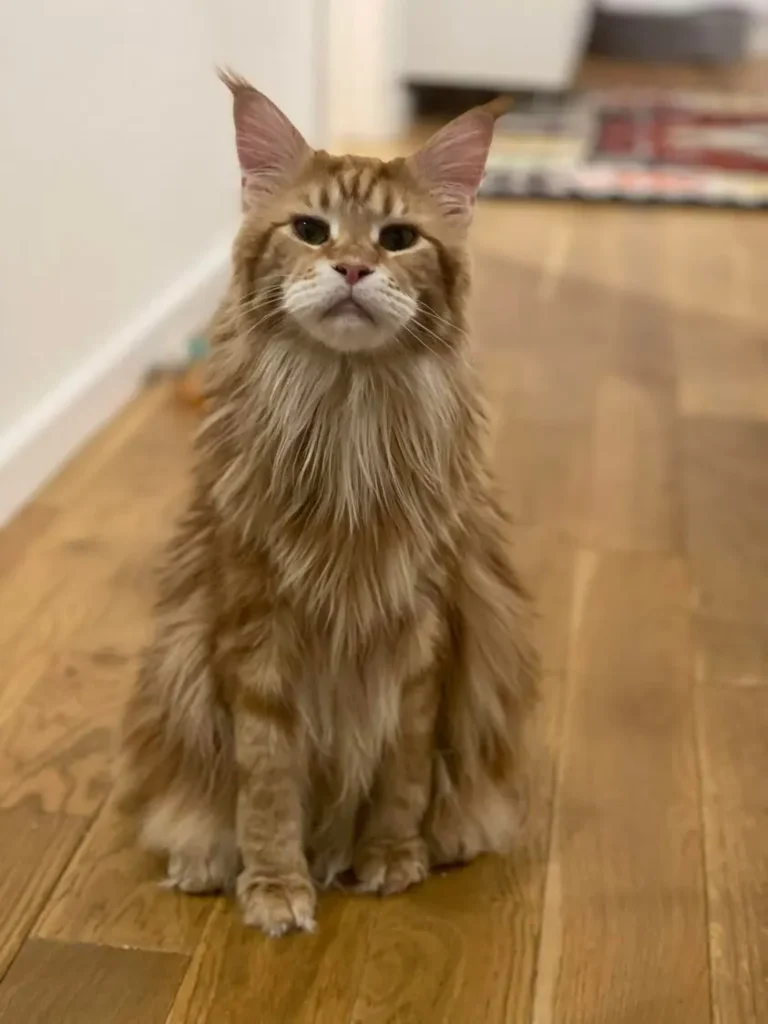
5-Litter Box Issues:
Litter box issues refer to Maine Coon Behavior problems related to urination or defecation outside the litter box, avoiding the litter box altogether, or excessive digging in the litter box. Various factors, including medical conditions, litter box aversion, territorial behavior, or stress can cause these issues. Maine Coons are generally fastidious cats that are easy to litter box train, but if they develop litter box issues, it’s important to identify and address the underlying cause.
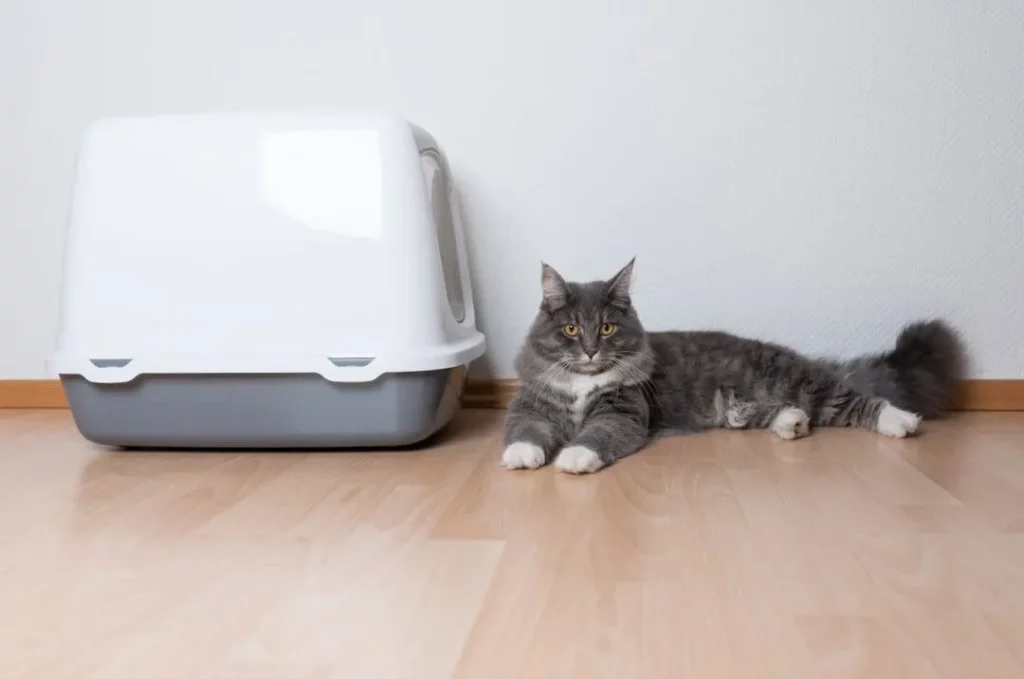
To manage litter box issues, ensure that you have enough litter boxes for your cat and that they are placed in quiet, private areas of the house. Keep the litter box clean and free from any strong smells that may deter your cat from using it. If your Maine Coon is avoiding the litter box, try switching to a different type of litter or litter box. Additionally, provide your cat with plenty of mental and physical stimulation, and reduce any sources of stress in the household. If litter box issues persist, it may be helpful to consult with a veterinarian or professional cat behaviorist to identify the underlying cause and develop a treatment plan.
6–Mating Behaviors:
Maine Coons, like most other domestic cats, have a mating season that typically occurs during the spring and summer months. During this time, female Maine Coons go into heat cycles, which is the period when they are most receptive to mating. Heat cycles in cats usually last around four to six days, and during this time, the female cat may exhibit certain behaviors such as increased vocalization, restlessness, and rubbing against objects or people.
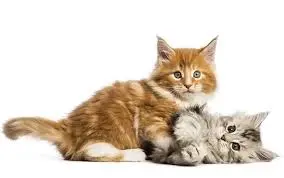
Male Maine Coons, on the other hand, will become more aggressive and territorial during the mating season. They will often mark their territory by spraying urine and may become more vocal and restless as they search for a female mate. Once a male cat has located a female in heat, he will begin the mating process by approaching her and engaging in various courtship behaviors.
7-Courtship and Mating:
Courtship behaviors in Maine Coons involve a series of rituals that are designed to help the male cat win over the female’s affection. These Maine Coon behavior Problems include vocalizations, chasing, and even fighting with other male cats to establish dominance and secure mating rights.
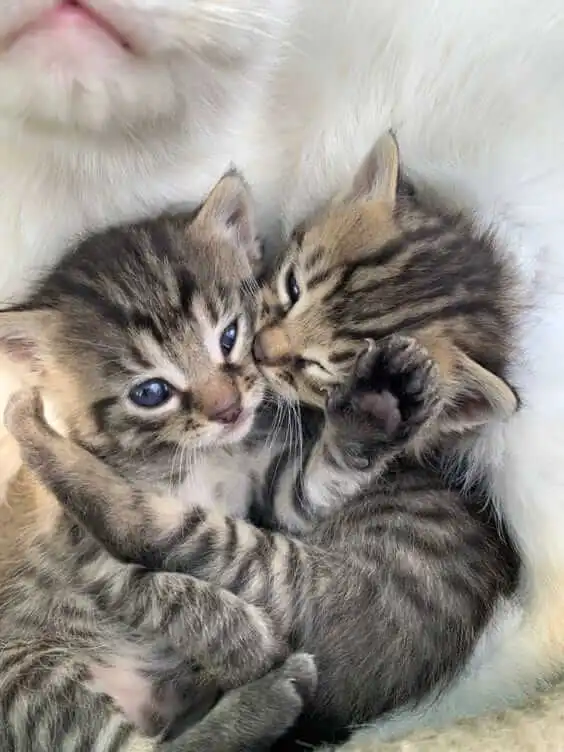
Once the male has successfully courted the female, the actual mating process begins. During copulation, the male cat will bite the female’s neck and hold her down with his forepaws while he inserts his penis into her vagina. The process can be quite violent, with the female often hissing and growling in protest. However, once the mating is complete, the female will often become more affectionate towards the male and may even groom him as a sign of acceptance.
8-Changes in sleeping:
If you notice that your Maine coon has an excessive amount of energy around evening time and you can’t rest as a result of them, that implies that they didn’t do a lot during the day and you let them rest day in and day out. As a result, you can’t expect them to sleep when you do. They won’t be paying attention because they’ve been up all night, so they’ll probably shout to find the owner. If you didn’t hear their zoomies, that will probably wake you up. However, if you are certain that your cat is not in danger, you should not react to their bad behavior or get up. Assuming you disregard it, they’ll realize that they will not stand out around evening time while it’s sleep time. Rather than that, make a point to have your custom before bed, and take a stab at playing with your feline to make it tired. As a result, you will both get a good night’s sleep.
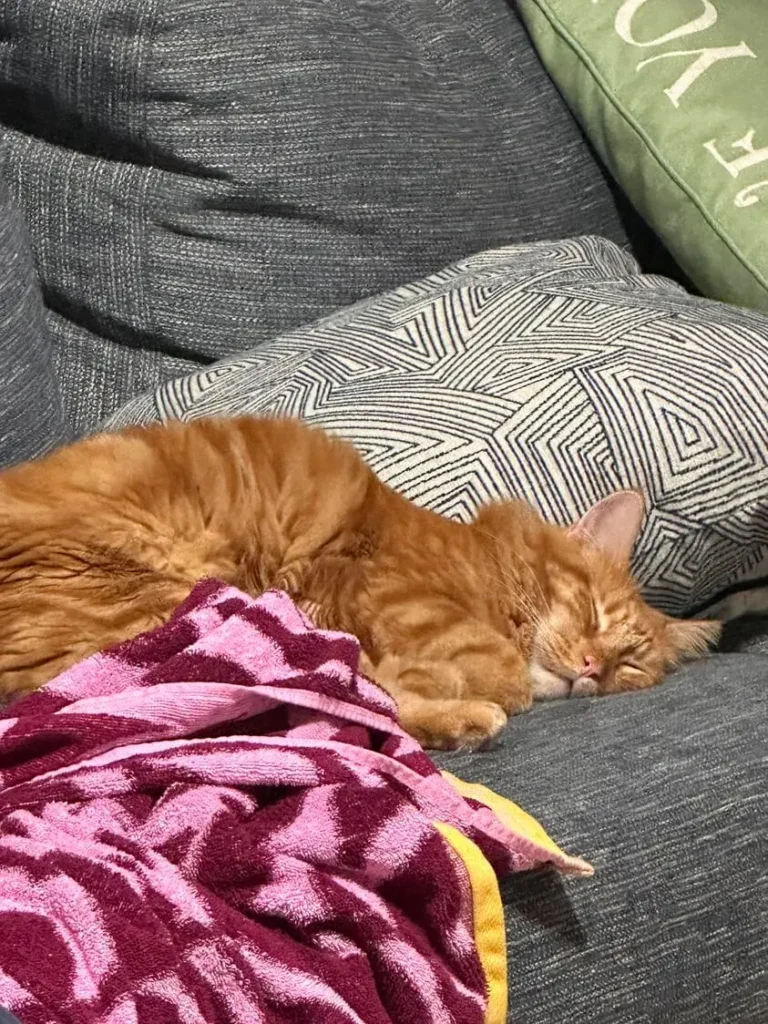
9–Dominance Behavior:
Maine Coons are generally friendly and affectionate towards their owners, but in rare cases, they may exhibit dominant behavior towards their owners. This can occur if the cat perceives the owner as a threat or challenge to their status, or if the owner inadvertently reinforces dominant behavior by rewarding it. Some signs that a Maine Coon is showing dominant behavior toward their owner include:
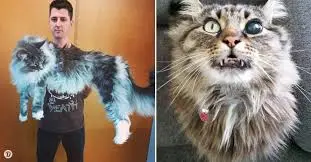
- Refusing to obey commands or ignoring the owner’s attempts to control their behavior.
- Showing aggression towards the owner, such as biting, scratching, or hissing.
- Blocking the owner’s path or refusing to move out of their way.
- Stealing food or other resources from the owner, such as toys or bedding.
To manage dominant behavior in Maine Coons towards their owners, it’s important to establish clear boundaries and rules and to reinforce positive behavior with rewards such as treats or playtime. Avoid physical punishment or yelling, as this can escalate the situation and reinforce aggressive behavior. If Maine Coon behavior problems persist or becomes aggressive, it’s important to consult with a veterinarian or professional cat behaviorist to identify the underlying cause and develop a treatment plan.
10–Full Of Stress:
Sometimes Maine coons look so stressed and due to this, Maine Coon behavior problems may change. They have a Loss of appetite or avoid food. When stressed, Maine Coons may lose interest in eating or avoid their food altogether. This can be a temporary response to anxiety. This stress can be due to many reasons but what I observed having my own Maine coon is that when any of their family members dies they feel so stressed. When I spend less time with my Maine coon it becomes stressful. when I give him a very small amount of food.When new family members are added to our family.When a new household pet arrived.
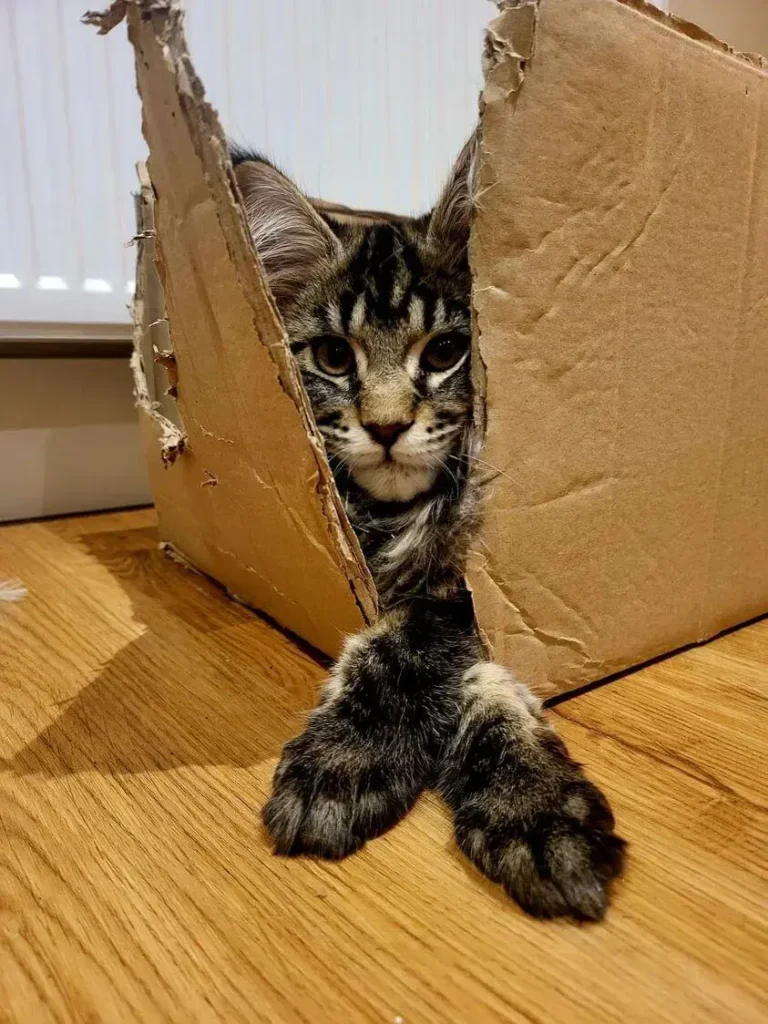
11-Overeating:
Overeating can lead to several health problems for Maine Coons, including obesity, diabetes, heart disease, and joint problems. It is crucial to monitor your cat’s diet, and food and ensure they are not overeating to avoid these health risks. By controlling portions, sticking to a feeding schedule, avoiding free feeding, offering low-calorie treats, and providing stimulation, you can ensure that your Maine Coon maintains a healthy weight and avoids the health risks associated with overeating. Always consult with your veterinarian to determine the appropriate diet and feeding schedule for your cat. Overall, it’s important to provide your Maine Coon with plenty of mental and physical stimulation, attention, and a stress-free environment to prevent and manage behavior problems. If Maine Coon behavior problems persist despite your efforts, consult with a veterinarian or professional cat behaviorist to identify the underlying cause and develop a treatment plan.
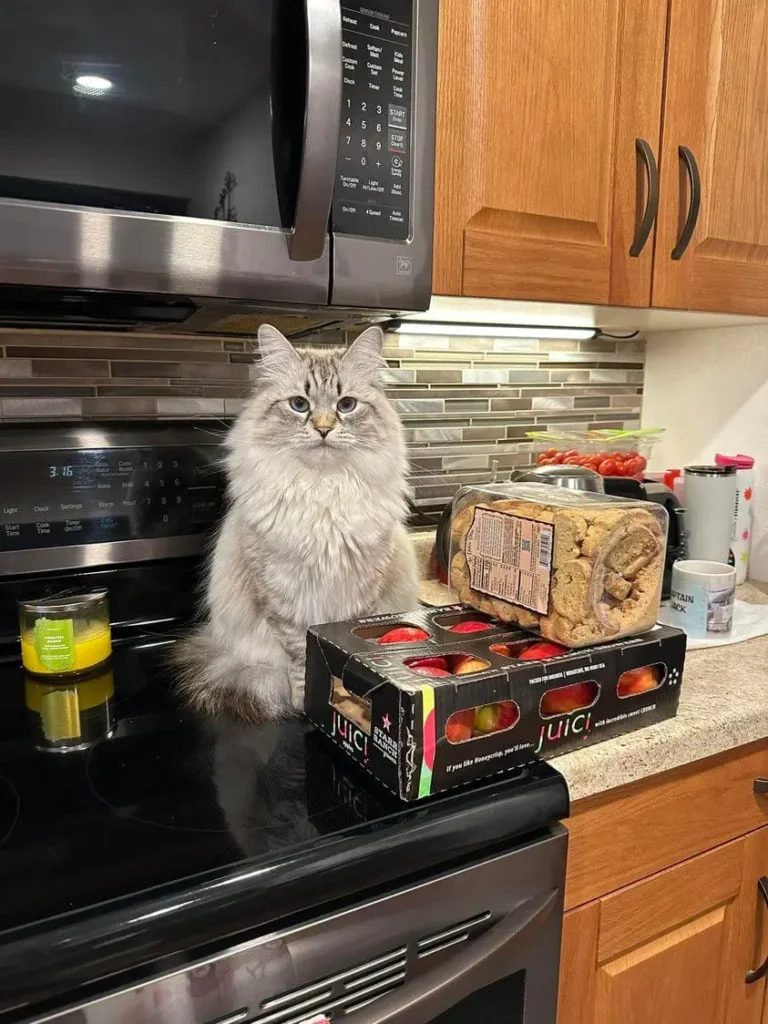
12– Scared or Nervous Behaviour:
Maine Coon cats, like any other breed, can display scared or nervous behaviors in certain situations. While each cat’s personality and temperament can vary, here are some common signs of fear or nervousness in Maine Coon cats:
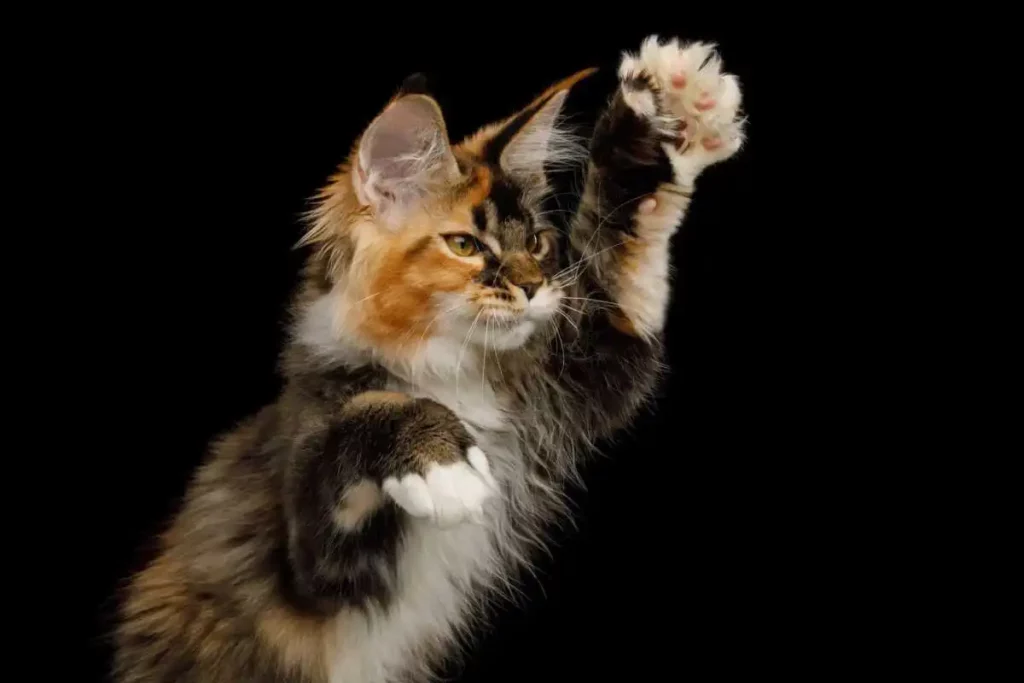
- Hiding: When scared or nervous, Maine Coons may seek out hiding places where they feel safe and secure. This can include under furniture, in closets, or behind objects.
- Dilated pupils: When a Maine Coon is frightened, their pupils may become enlarged or dilated. This is a physiological response to stress or fear.
- Increased vigilance: Nervous Maine Coons may display hyperawareness of their surroundings. They may constantly scan the environment, keep their ears perked up, and exhibit a tense body posture.
- Tail position: A fearful or nervous Maine Coon may hold their tail close to their body or even tuck it between their legs. This is a defensive posture indicating their unease.
- Excessive grooming or licking: Some Maine Coons may resort to excessive grooming or licking when they are anxious. This behavior can provide them with a self-soothing mechanism.
Maine Coon Behavior Problems Solutions: The Ultimate Guide!
Addressing the Maine coon behavior problems involves a combination of understanding the underlying causes, providing proper training and enrichment, and seeking professional guidance when necessary. Here are some steps you can take to help address Maine Coon behavior problems:
- Identify the cause: Understand the root cause of the Maine Coon behavior problems. It could be due to fear, stress, boredom, territorial issues, or a medical condition. Observing the cat’s behavior patterns and consulting with a veterinarian or animal behaviorist can help pinpoint the cause.
- Create a safe and enriched environment: Ensure your Maine Coon has a safe and stimulating environment. Provide scratching posts, climbing trees, toys, and hiding spots to fulfill their instincts. A comfortable litter box and separate feeding areas can also reduce stress and we can overcome maine coon behavior problems.
- Positive reinforcement training: Use positive reinforcement techniques to train your Maine Coon. Avoid punishment or harsh methods, as they can increase fear and anxiety.
- Consistency and routine: Maintain a consistent daily routine for feeding, playtime, and litter box cleaning. Maine Coons thrive on routine, and a predictable environment can help reduce anxiety and unwanted behaviors.
- Socialization and interaction: Maine Coons are generally social cats, so provide opportunities for socialization with humans and other animals in a controlled and positive manner. Gradually expose them to new experiences and people, rewarding them for calm and confident behavior. This can include loud noises, changes in routine, or conflicts with other pets. Minimize stress by creating a calm and predictable atmosphere.
- Seek professional help: If the Maine coon behavior problems persist or are severe, consult with a veterinarian or a certified animal behaviorist. They can provide specific advice tailored to your Maine Coon’s needs and recommend behavior modification techniques or additional interventions if necessary.
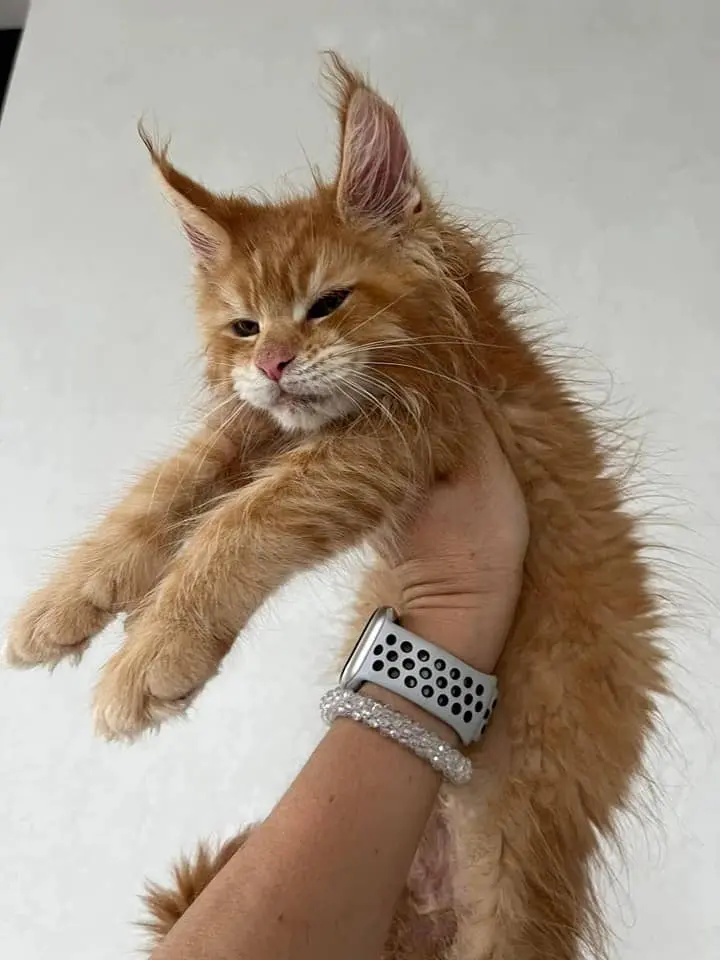
Conclusion:
It’s important to note that every cat is an individual, and their reactions to fear or nervousness may vary. If you notice persistent signs of fear or anxiety in your Maine Coon, it’s best to consult with a veterinarian or a professional animal behaviorist who can provide personalized advice and guidance. In short Maine coon Behavior problems are very common but with some patience and care, we can overcome these problems.
